Filmmaker Ben Rivers is drawn to outsiders and misfits, people who prefer solitude over society and live in shacks in the sticks rather than bungalows in the suburbs. Living in the Kent cottage she shared with her painter husband Roy Oxlade until his death last year, Rose Wylie hardly fits the bill; yet one can see why Rivers was drawn to her. In his disarming film, What Means Something, 2015 (main picture) she comes across as a genuine eccentric, ploughing her own furrow. Despite receiving scant attention, she persisted in painting large-scale images of people surrounded by cryptic comments, in a deceptively simple style like a cross between Jean-Michel Basquiat and Philip Guston’s cartoon-inspired late paintings.
But things are changing. Last year at 80, Wylie became the oldest person to win the John Moore’s Painting Prize and this year, at the Royal Academy Summer Exhibition, she won the Charles Wollaston Award. This belated success may be helping to shift those previously unsaleable paintings, but it has done little to deflect her from her idiosyncratic path.
On a large canvas pinned to the wall, we see a huge chocolate ghoul gradually taking shape over horizontal stripes. Contrary to what one might expect from the paired-down simplicity of the image, there’s nothing speedy or spontaneous about Wylie’s approach. The Halloween spectre may look childishly obvious, but this apparent immediacy is hard won. The uniformity of its sticky brown surface is achieved, for instance, through the slow and methodical application of brush-loads of thick, dark paint.
Wylie’s comments are equally carefully considered and take scant account of the viewer. She reads a passage from a book outlining the qualities of a masterpiece, but her swallowed words are virtually inaudible. Flicking through some drawings of the furniture in the room where she stayed at the Chelsea Arts Club, she describes liking a large chest of drawers because it was so “implacably ordinary”. She then recounts how on New Year’s Eve she moved to a nearby B&B where she found a book on how to draw cats and copied an aggressive ginger cat, an alert grey moggy and a feline face reminiscent of a firing target.
Would her oddball mixture of sophistication and naivety become irritating after a while? Probably, but this half hour spent in her company is a delight, especially as Rivers’ informal approach – he leaves in the cues and false starts yet cuts off Wylie’s ruminations mid-sentence – is perfectly attuned to his idiosyncratic subject.
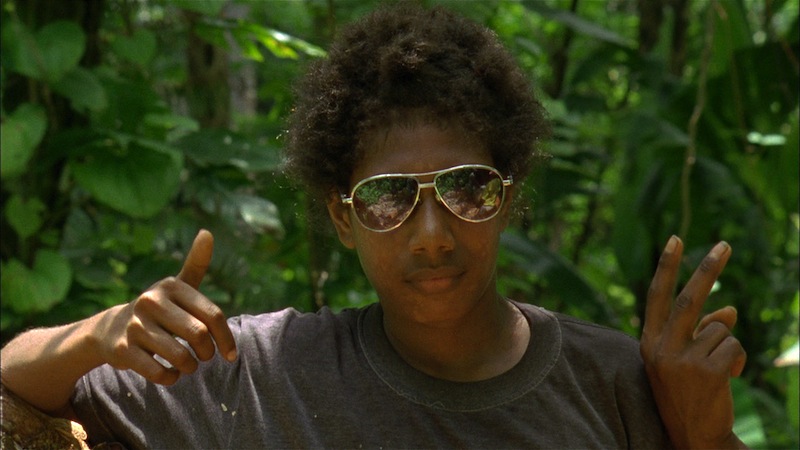 If What Means Something relies on the engaging presence of Rose Wylie, Phantoms of a Libertine, 2012, focuses on absence – the traces left behind by someone recently departed. Snapshots record visits to Egypt, Berlin, Bethlehem, Marseille and Acapulco while captions such as “I was convalescing” or “I had acute diarrhoea and was waiting for a train” flesh out the circumstances. But words and images are never united so the captions serve no purpose and the people photographed remain anonymous. We learn nothing about the owner of the photo album except that s/he was often away and now seems to have left for good. In Rivers’ hands, these ephemeral and indistinct mementoes become a metaphor for one’s brief passage through life. We leave so little in our wake!
If What Means Something relies on the engaging presence of Rose Wylie, Phantoms of a Libertine, 2012, focuses on absence – the traces left behind by someone recently departed. Snapshots record visits to Egypt, Berlin, Bethlehem, Marseille and Acapulco while captions such as “I was convalescing” or “I had acute diarrhoea and was waiting for a train” flesh out the circumstances. But words and images are never united so the captions serve no purpose and the people photographed remain anonymous. We learn nothing about the owner of the photo album except that s/he was often away and now seems to have left for good. In Rivers’ hands, these ephemeral and indistinct mementoes become a metaphor for one’s brief passage through life. We leave so little in our wake!
Of the four films on show, There Is a Happy Land Further Away, 2015 (still, pictured above), is the most recent. Filmed on the South Pacific island of Vanuatu, the footage records the tranquil beauty of this tropical paradise; but derelict boats, drowned fragments of World War Two weaponry and a cauldron of red hot lava seething in the depths of the active volcano alert one to the fragility of this peaceful place.
The soundtrack – of a woman haltingly rehearsing a poem by Henri Michaux about a distant land – adds another discordant note; belief in the unsullied existence of paradise is becoming harder to cling onto, it seems. Earlier this year the island was devastated by Cyclone Pam, a disaster that prompted Rivers to add an apocalyptic coda – digital footage of a model village swamped by floodwater – which confirms the wisdom of such scepticism.
Filmed in grainy black and white, Ah, Liberty, 2008 (still, pictured below), the earliest film on show, is the most beautiful. The cinemascope format lends itself to the epic quality of the subject matter. Ponies and goats roam among abandoned vehicles in a wild landscape where inventive children devise innumerable games. They speed uphill in a clapped-out car, charge about on go-carts and float a boat on a rancid pond. We scarcely see their faces; a cardboard box offers some protection from a downpour, while at other times, the kids wear gorilla or golliwog masks that make them appear disconcertingly alien, as well as untamed – feral rather than free. Living on the margins of society may release one from petty constraints but at what cost, the film seems to ask.
 Curated by Ben RIvers, the accompanying show Edgelands is a selection of work by artists such as Prunella Clough, Max Ernst and Stuart Middleton inspired by areas of the urban fabric which are usually overlooked or disregarded. Their responses tend to be tastefully aesthetic. Containing miniature bin bags, tiny snippets of carpet, segments of plastic tubing and scatterings of grit, Jeremy Butler’s rubbish dump, for instance, is an exquisite rendering of abject squalor.
Curated by Ben RIvers, the accompanying show Edgelands is a selection of work by artists such as Prunella Clough, Max Ernst and Stuart Middleton inspired by areas of the urban fabric which are usually overlooked or disregarded. Their responses tend to be tastefully aesthetic. Containing miniature bin bags, tiny snippets of carpet, segments of plastic tubing and scatterings of grit, Jeremy Butler’s rubbish dump, for instance, is an exquisite rendering of abject squalor.
Finding beauty in the discarded or despised is one thing, but retreating from the politics of waste and over-production into aesthetics seems too easy an answer. I’d much rather have seen another film by Ben Rivers than this insipid collection of work whose presence merely dilutes the issues obliquely raised by his interesting work.
- Ben Rivers: Earth Needs More Magicians at Camden Arts Centre until 29 November

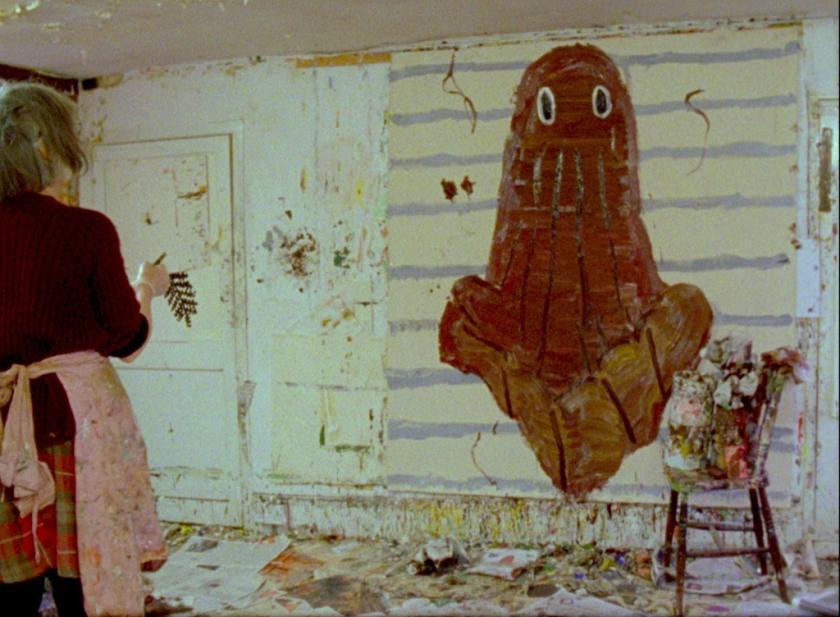


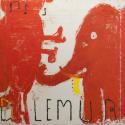

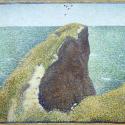


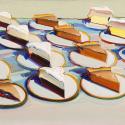



![SEX MONEY RACE RELIGION [2016] by Gilbert and George. Installation shot of Gilbert & George 21ST CENTURY PICTURES Hayward Gallery](/sites/default/files/styles/thumbnail_125_x_125_/public/mastimages/Gilbert%20%26%20George_%2021ST%20CENTURY%20PICTURES.%20SEX%20MONEY%20RACE%20RELIGION%20%5B2016%5D.%20Photo_%20Mark%20Blower.%20Courtesy%20of%20the%20Gilbert%20%26%20George%20and%20the%20Hayward%20Gallery._0.jpg?itok=3oW-Y84i)
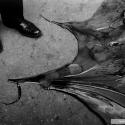
Add comment